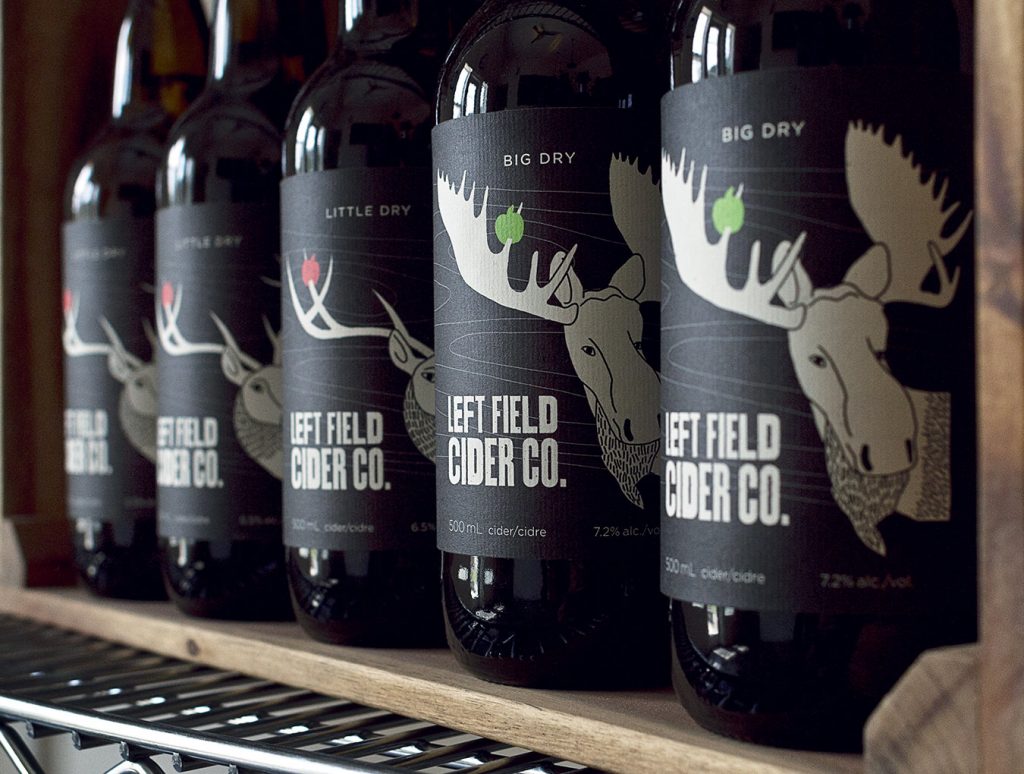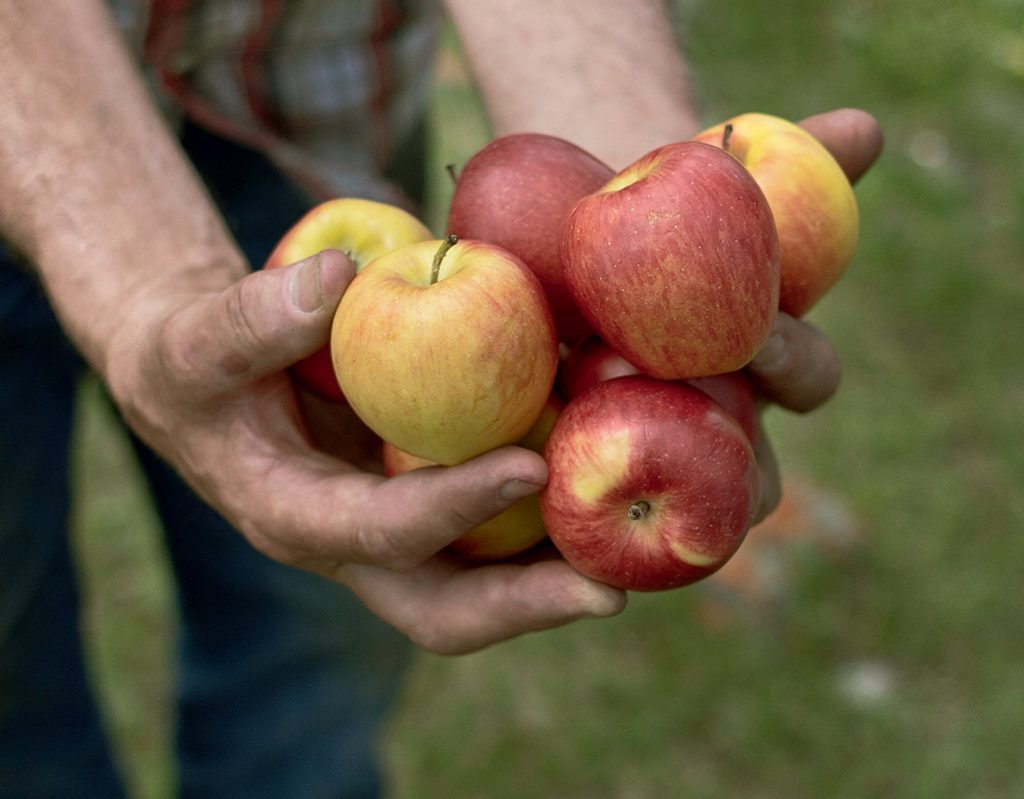To celebrate the year-end apple harvest, cider makers in producing regions engage in the ancient tradition of wassailing. The orchard wassail is a pre-Christian, pagan tradition held on Twelfth Night, or the evening of January 6. (Others still insist on celebrating on “Old Twelvey Night”, January 17, as that would have been the true date prior to the implementation of the Gregorian Calendar.) It is a community focused ceremony designed to ward off evil spirits in the orchard, promote a productive season, and ensure a bountiful harvest in fruit bearing fields.
For the two sisters of Left Field Cider, a B.C.-based, family run cider house, their hope is to extend the ethos of this neighbourly tradition beyond their friends and family to their growing base of West Coast devotees. Their annual wassail is preceded by a bonspiel, and as the evening’s festivities wind down, of course, there is a warm night cap of mulled cider. The event is an appropriate testament to the tenacity and drive of Theresa and Kate, the founders who play host.
While typically enjoyed on a crisp summer day, a glass of dry craft cider has not only begun making a comeback as the drink of choice for those looking beyond beer and wine, but also represents a refreshment that can be enjoyed well into the winter months. In fact, served cold and carbonated, at room temperature or simmered over the stove with holiday spices, fermented, apple based beverages can be naturally derived for any occasion. Based just outside of Merritt, at Mamette Lake, Left Field specializes in traditional English-style cider made with real Okanagan apples. Regionally grown and specially grafted English and French cider apples constitute their base ingredients, in a gluten-free, full juice recipe that has earned Left Field the loyalty of a growing tribe of cider aficionados. Using 100 per cent real juice, pressed once a year when apples are at their freshest, one bottle takes six to eight months to make.
Despite the founders’ youthful appearance, their approach to artisanal, handcraft cider making has been hard earned. Both sisters were run through the paces in a traditional cider course at the University of Washington’s Mount Vernon Research and Extension Centre. Master cider maker Peter Mitchell taught both sisters and their father the finer points of the cider making process, from fermentation to carbonation, in advancing levels of hands-on training. Kate then went on to hone her craft with well-known craft cider maker, Mike Johnson of Ross-on-Wye Cider & Perry in southeastern Hertfordshire. “I spent almost a year living at Broome Farm, where I was introduced to a wide variety of cider apples, like Balls Bittersweet and Harry Master’s Jersey,” she says, explaining that, like wine grapes, cider apples have varying levels of acidity and tannins, and are not always pleasant to eat. They generally fall under four categories—sweets, sharps, bittersweets, and bittersharps. “I was fully immersed in England’s cider culture, and the biggest thing I took away with me was a passion for making real full juice cider.”
Since their first test run in 2009, they’ve grown from 8,500 litres in their first year of commercial production to triple that this past year. The two women are organically growing distribution, offering a personal touch by leading their own cider tastings. “I think people appreciate knowing that someone, a person, is making their cider and that it’s not just coming from some factory. There’s a romance to it,” says Theresa.
On the horizon for the sisters are future iterations of their Cidermaker’s Select series, a premium line they launched this year that gives them room to experiment, using unique micro batches that allow them to vary fermentation techniques. A bourbon barrelled batch is also on the drawing board.
As they expand their reach, increase capacity and breadth of product, Theresa and Kate are also focusing on home. They are planning their next big wassail with new and exciting ways to share the farming experience that inspired their own love of cider. With their staple Little Dry and Big Dry ciders set firmly in our summer flavour profiles, it will be worth paying attention what comes next with this young upstart from Mamette.
Photos: Derek Dix.










